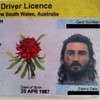Screenshot via Google
The ball came to Serevi via a one-armed coconut toss that wouldn't have looked out of place in the Suva markets. It wasn't a great pass at the best of times. Let alone in the final of the Hong Kong Sevens with an All Black steaming down on you. But they don't call him "the little magician" for nothing, and what Waisale Serevi did next would astound the rugby world.The year was 1991 and Fiji was just entering their golden era of Rugby Sevens. Waisale Serevi, the Michael Jordan of sevens (minus the big dollar contracts), had made his debut for the country two years earlier. Now they were going head to head with the greatest rugby nation on earth, the All Blacks, led by the legendary Zinzan Brooke.In one motion Serevi received the ball, smacked it backwards over his head volleyball-style, ducked a swinging arm from the All Black, and set off a backline play that would result in what still rates as one of the greatest Rugby Sevens tries of all-time.As the ball reached the next man in the chain, he one-upped Serevi. Standing directly in front of his goal-posts not 15 meters off his try line, he plucked the ball out of the air and threw it backwards through his legs Harlem Globetrotters style. From there it sailed into the arms of the winger who set off downfield, outpacing his opponent with a quirky island-style gallop for a try and a famous win for Fiji. The Rugby Sevens concept might have been around for a while now, but no one had played it like this. Fiji were kings."Almost uncanny in handling the ball, lightning in the pace of their sprinting, relentless in their dive tackling…and all the time pursuing methods of bright, open football, the Fijians gave a sparkling display and thrilled the large crowd," they wrote.But it wasn't until the genesis of the seven-a-side game that they really made their mark. Since the inaugural Hong Kong Sevens tournament in 1977 (won by Fiji), they have taken out the competition 16 times; won two Rugby Sevens World Cups; and three IRB World Sevens Series. In the process the team has unearthed some of the most exciting rugby union players of all-time, among them Sireli Bobo and Rupeni Caucaunibuca, a keg on legs with the agility of a rhino and the speed of light. If you were shocked when Jarryd Hayne failed to make the Fijian Sevens team for the Rio Olympics, then you probably haven't seen this footage.Despite their world-class talent, it's been a hard graft for Fijians to make a living playing football. The great Serevi got his break playing in Japan but was without his young family, who remained in Fiji for the duration of his five years there. Caucaunibuca was a revelation in both Sevens and the 15-man game, dominating the 2003 World Cup, though ultimately ending up in an obscure French side where he struggled equally for motivation as he did for quality players inside him to deliver him the ball with the time and space he needed.United under the banner of Fiji, however, they remained untouchable. Sevens is where they've made their name and no matter how big Fiji's players get abroad they almost always return to represent the nation. In recent years they have played second fiddle to the All Blacks who beat them for gold in consecutive Commonwealth Games. They exacted the sweetest revenge a few days ago in Rio where Rugby Sevens made its inaugural appearance and Fiji knocked over a talent-packed All Blacks outfit in the quarters, featuring Sonny Bill Williams among others.They trounced Great Britain in the final, the game pretty well over by halftime as the island nation of 900 000 claimed their first gold medal. Prime Minister Frank Bainimarama was there to watch it happen, shunning the VIP area to watch Fiji's games alongside the friends, family and travelling fans in the stands. He would declare a national holiday in honour of the performance as celebrations continue across the country.Follow Jed Smith on twitter.
Advertisement
via GIPHYRugby first arrived on the island back in 1884 when European and Fijian soldiers engaged in the first ever game on Viti Levu. Many of the nation's early rugby encounters came via the military, as passing warships stopped off for a game or two with the locals. Though it was a Kiwi from Dunedin, with an Irish name, Paddy Sheehan who helped set-up Fiji's first club competition in 1914. Ten years later they would play their first international against Samoa in Apia on a field with a large tree on the halfway line. No one was wearing shoes either. Footwear was still 14 years away and it would be the New Zealand Maori who brought them. The Maoris became the first international team to tour Fiji in 1938, a trip which would introduce the islanders to wearing boots. But they weren't so keen on the idea and would become famous over the next few years for tossing their boots to the sidelines mid-game and going the rest barefoot. It didn't change much in their game. They were still incredible, as the New Zealand media found out the following year when Fiji toured the country for the first time. The Waikato Times called it "the most brilliant exhibition of football seen in Hamilton in Years," and predicted "Fiji (was) destined to play a big part in world rugby."
Advertisement
